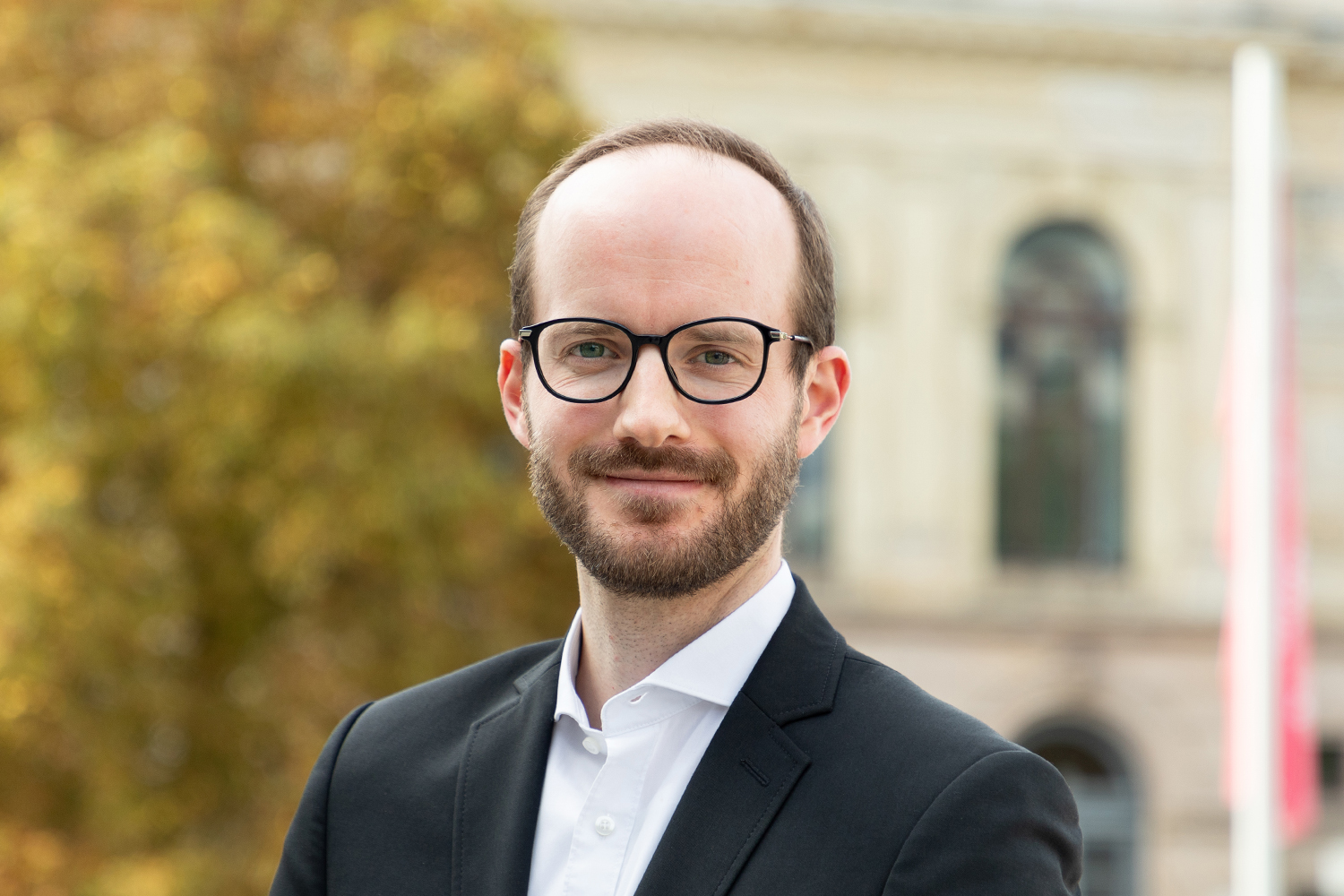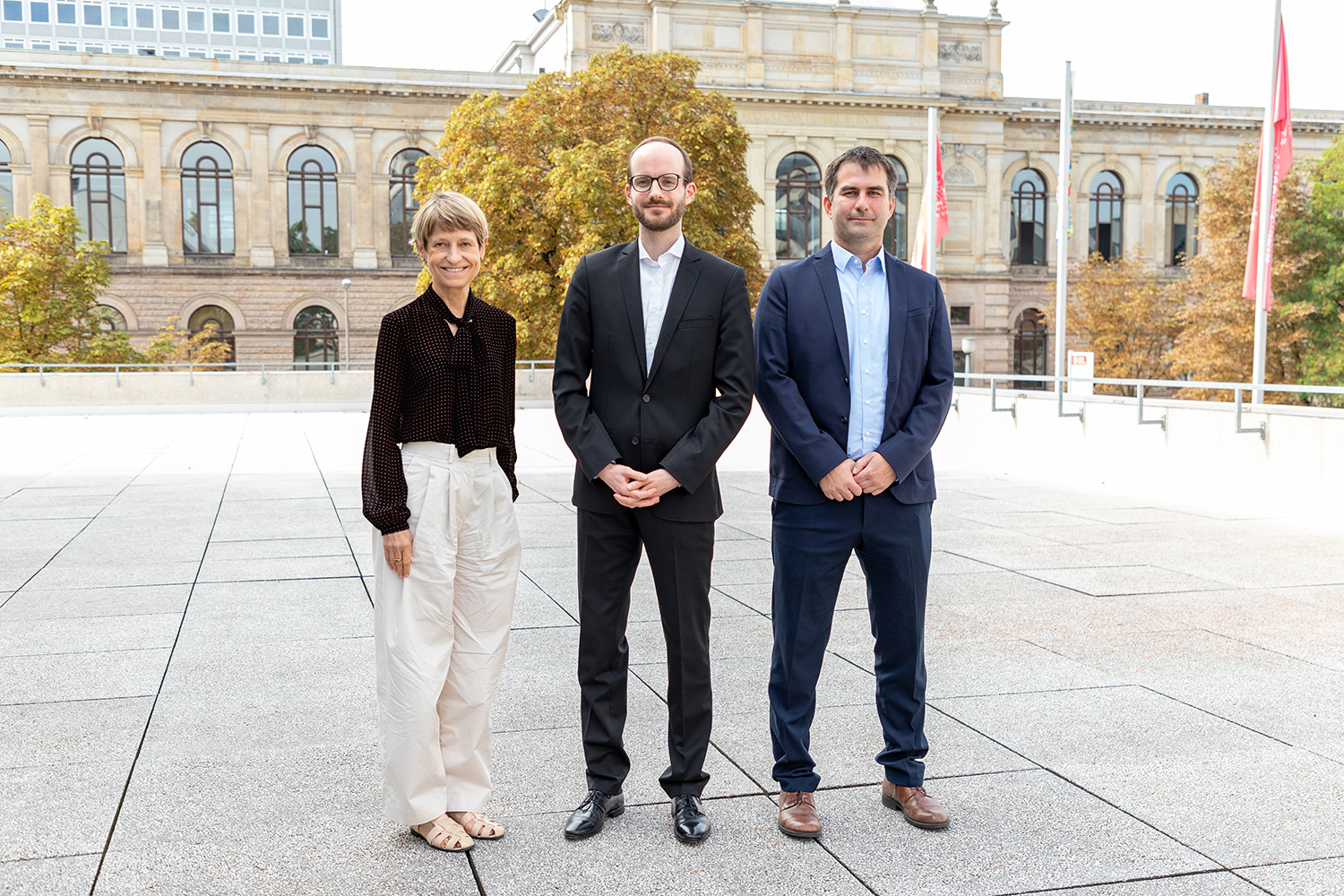“There is entrepreneurial potential in all of us” Bastian Kindermann is the new Professor for Entrepreneurship and Company Succession
Professor Bastian Kindermann has been researching and teaching at the Institute of Automotive Economics and Industrial Production (AIP) at Technische Universität Braunschweig since the winter semester of 2024/25. Previously, he was an assistant professor at the Technical University of Dortmund. His research focuses on entrepreneurship, digitalisation, innovation ecosystems and strategy. In this interview, he talks about the specific projects he is working on and what motivated him to conduct research in this area.

Bastian Kindermann is the new Professor of Entrepreneurship and Business Succession. Photo credits: Kristina Rottig/TU Braunschweig
In recent years, you have taught and conducted research at RWTH Aachen and TU Dortmund. What attracts you to TU Braunschweig?
Technical universities attach great importance to the close integration of economics, natural sciences and engineering. The resulting cooperation in research and teaching is very productive. After my previous positions in Aachen and Dortmund, I was therefore very pleased to be able to continue working at a technically oriented university with the professorship at TU Braunschweig.
As a member of the TU9 Group, TU Braunschweig is embedded in a strong university network that offers exciting opportunities for development. In addition, the choice of university-wide research priorities, in particular ‘Mobility’ and ‘Engineering for Health’, provides a forward-looking framework for research and teaching activities.
What exactly is your research about? How would you explain your work to someone unfamiliar with the subject?
Currently, my research is mainly in the area of entrepreneurship. As a driver of innovation, entrepreneurship plays an essential role in the development of economies. Successful entrepreneurs challenge existing structures and technologies and ultimately replace them with new ones. The Austrian economist Joseph Schumpeter therefore described entrepreneurship as a process that can lead to ‘creative destruction’ (1934).
My work examines the conditions under which entrepreneurial processes can be made as successful as possible. In particular, in the early stages of development, young firms are highly dependent on investors and other external stakeholders. Therefore, developing an understanding of how entrepreneurs should manage their relationships with these stakeholders can be critical to the survival of young firms.

President Angela Ittel with Professor Bastian Kindermann and Professor Markus Ludwig, spokesperson of the Department of Economics at the Carl-Friedrich-Gauß-Fakultät. Photo credits: Kristina Rottig/TU Braunschweig
What are the main research areas and projects you will be working on at TU Braunschweig?
With the technological developments of recent years, the question of the extent to which Artificial Intelligence (AI) can support business processes is increasingly being asked. Research in this area is still in its infancy, so in many respects there is a lack of clarity about the usability of AI in a business context. My research aims to contribute to this field and, at best, help entrepreneurs understand the opportunities and risks of AI-enabled entrepreneurship.
I would also like to investigate industry-specific challenges in the development of young companies. For example, financial technology start-ups can make a significant contribution to improving financial inclusion for previously marginalised groups. However, to fulfil this promise, these start-ups need strategies that enable them to meet both their growth ambitions and the high regulatory requirements of the financial industry. Our knowledge of such strategies is limited and needs to be further developed.
What motivated you to conduct research in this area?
I believe that there is entrepreneurial potential in all of us. If we are to overcome the major challenges of our time, we need to unleash as much of this ‘collective’ potential as possible and show ways to make entrepreneurship work. Researchers can make an important contribution to this by developing theories and best practices for responsible entrepreneurship and sharing this knowledge in their courses.
How would you sum up your typical working day in three words?
Discover, learn, create.
